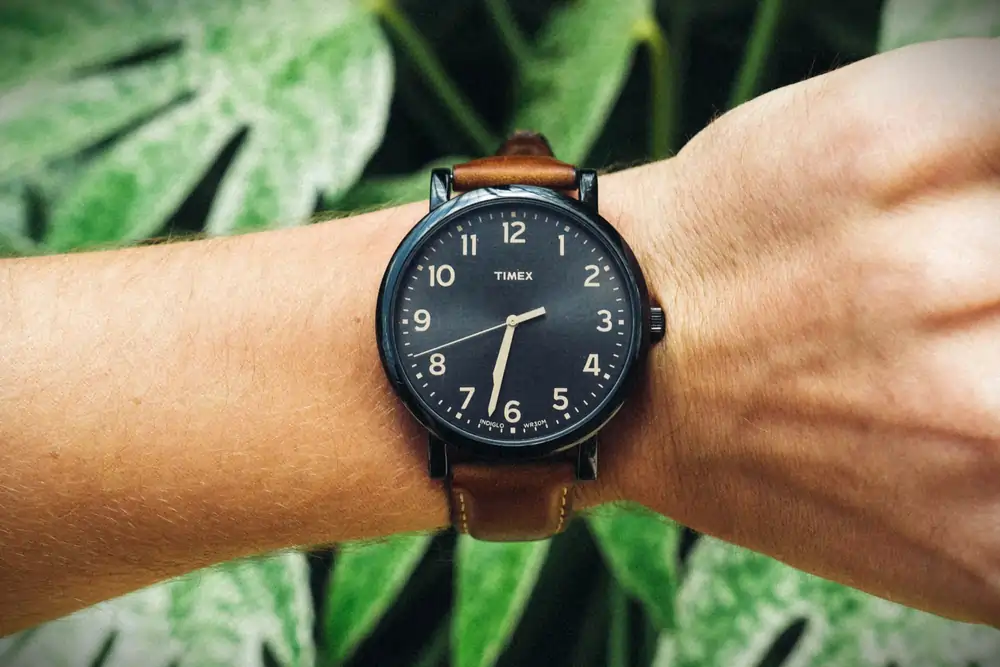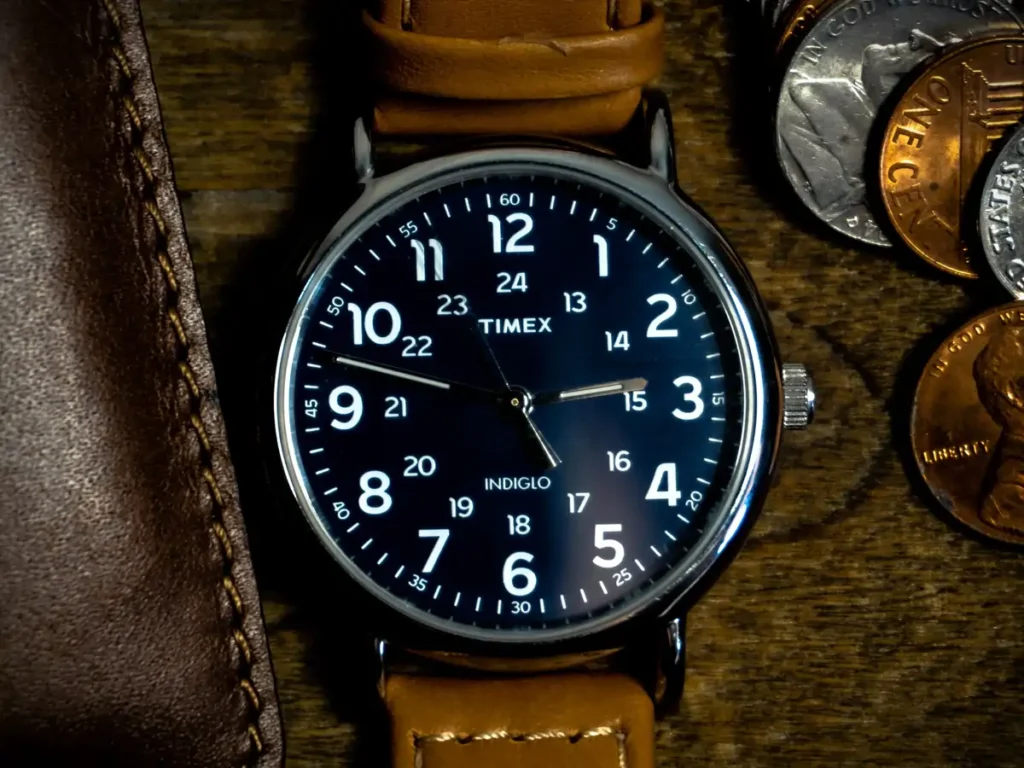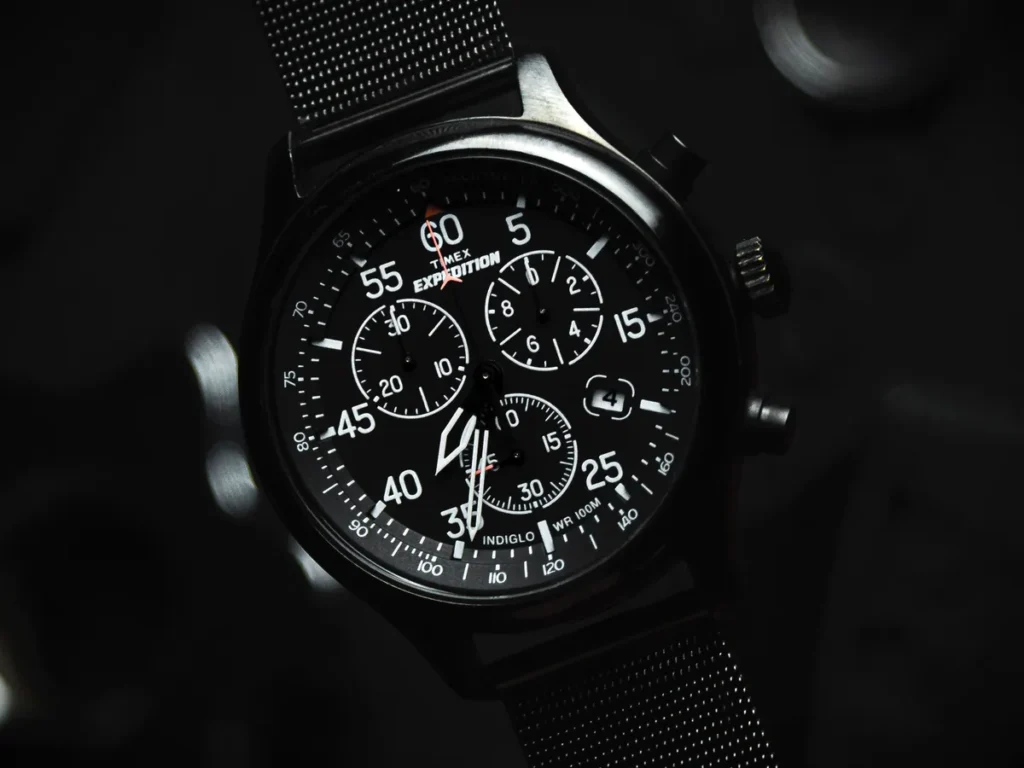Timex Watches: Quality, Value & Durability Review
When you’re in the market for a new watch, Timex often emerges as an appealing option. With their iconic “takes a licking and keeps on ticking” slogan, these watches have been a staple of reliable timekeeping for generations. But in today’s market, with countless options available, you might wonder: Are Timex watches actually good?
Having reviewed hundreds of watches and closely followed Timex’s evolution over the years, I’m here to help you understand what you can expect from a Timex watch. We’ll cover everything from build quality to real-world performance, so you can determine if a Timex is right for you.
Contents
Heritage and Brand Reputation
Timex’s story began in 1854 when it was known as the Waterbury Clock Company in Connecticut. Unlike many watch brands that focus on their Swiss origins, Timex is proud of its American roots. During World War II, the company made reliable watches and timing tools for the military, showing they could build tough, dependable timepieces.
The Timex name was introduced in 1944, and by the 1960s, it became incredibly popular—selling one out of every three watches in the U.S. People loved Timex for being affordable and durable.

Today, Timex stands out by focusing on making reliable, stylish watches instead of competing with expensive luxury brands. Most of their watches cost between $50 and $350, making them a great option for people who want something dependable without spending too much. Timex also works with designers to create modern, trendy watches that still stay true to their roots.
Build Quality and Materials: What You Actually Get
Let’s break down what Timex puts into their watches:
Case Materials
- Most Timex watches use brass cases with a layer of chrome or stainless steel plating.
- Their higher-end models, like the Waterbury or Marlin collections, are made with solid stainless steel for better durability and a premium feel.
- For sports models, such as the Ironman series, Timex often uses lightweight resin or reinforced plastic, which are tough and practical.
Crystal Types
- Mineral glass is the standard for most Timex watches.
- Acrylic crystals are used in budget-friendly Timex models. They’re not as scratch-resistant but are less likely to shatter.
- Timex typically doesn’t use sapphire crystals, which are tougher and more scratch-resistant, unlike some similarly priced Casio watches. However, a few higher-priced Timex models (over $200) do feature sapphire crystals, though these are rare.
Water Resistance
Timex watches offer practical water resistance for different needs:
- Basic models: Rated at 30m, which means they can handle light splashes but shouldn’t be used for swimming.
- Mid-range models: Rated at 50-100m, making them suitable for swimming or light water activities.
- Sports models: Some, like the Deepwater Reel 200 watches, are rated up to 200m. These are fine for snorkeling or recreational diving but not for deep-sea diving.
Quick Tip: The water resistance rating (like 30m) doesn’t mean you can dive that deep. It’s more about what kind of water exposure the watch can handle.
Movements
- Timex mostly uses quartz movements, which are reliable and accurate, keeping time to within +/- 15 seconds per month.
- Their mechanical watches, like those in the Marlin collection, feature automatic movements sourced from Japanese manufacturers like Miyota. These movements are well-regarded for their quality at an affordable price.
Real-World Value: Price-to-Quality Analysis
What sets Timex apart is its ability to deliver reliable watches at remarkably accessible prices. Here’s how different price points break down:
Under $100:
- Basic but reliable timekeeping
- Surprisingly durable for the price
- Perfect for daily beaters
$100-200:
- Better materials (stainless steel cases)
- Improved water resistance
- More sophisticated designs
$200-350:
- Premium finishes
- Automatic movements (in select models)
- Enhanced durability features
Compared to similar-priced watches from Casio, swatch, or Fossil, Timex often offers comparable quality with more classic American styling. However, they sometimes lag behind in technical innovation and premium materials.
Popular Timex Collections: What Works Best?

Weekender Series ($50-100)
- Perfect for casual wear
- Interchangeable straps
- Clean, versatile design
- Loud tick (common complaint)
Expedition Line ($50-350)
- Robust outdoor functionality
- Excellent luminous dials
- Good water resistance
- Reliable chronograph features

Marlin Collection ($200+)
- Vintage-inspired designs
- Automatic movement options
- Higher-end finishing
- Better quality leather straps
Ironman Sports Watches ($50-150)
- Proven durability
- Excellent for fitness tracking
- Strong water resistance
- User-friendly interface
Pros and Cons of Timex Watches
Advantages:
- Excellent value for money
- Wide availability of parts
- Easy to service
- Proven durability
- Classic designs
Limitations:
- Limited use of premium materials
- Some models tick loudly
- Basic movements compared to competitors
- Limited collector value
Final Verdict: Should You Buy a Timex?
After thorough analysis, Timex watches prove to be excellent choices for specific users:
Buy a Timex if you:
- Want a reliable daily watch under $150
- Prefer classic American styling
- Need a durable beater watch
- Like simple, functional designs
Consider alternatives if you:
- Want premium materials like sapphire crystal
- Collect watches for investment
- Need the latest tech features
- Prefer absolutely silent watch operation
Top Affordable Brand Alternatives in the Same Price Range (Under $250):
- Casio (better tech features)
- Swatch (more unique designs)
- Fossil (more fashion-forward designs)
- Invicta (more sporty & bold designs)
Timex watches deliver exactly what they promise: reliable timekeeping at reasonable prices. While they may not excel in premium materials or innovative features, they offer dependable performance for everyday use. Their greatest strength lies in providing functional, stylish watches that most people can afford without worry.
For most casual users seeking a reliable timepiece under $150, Timex remains an excellent choice. Just be sure to choose the right model for your specific needs, and you’ll likely end up with a watch that truly does “take a licking and keep on ticking.”
Frequently Asked Questions About Timex Watches
Q: How long do Timex watches typically last?
A: With proper care, a Timex watch can last 5-10 years or more. The quartz movements are particularly durable, though you’ll need to replace batteries every 2-5 years depending on the model. The mechanical Marlin collection requires more maintenance but can last decades with proper servicing.
Q: Why do some Timex watches tick so loudly?
A: The loud ticking, particularly noticeable in the Weekender series, comes from the design of their quartz movement and case construction. If this bothers you, consider models like the Expedition or Marlin series, which are generally quieter.
Q: Can I replace the battery of Timex watches by myself?
A: Yes, many Timex models allow for DIY battery replacement. However, if your watch is water-resistant, it’s recommended to have a professional replace the battery to ensure the water-resistant seals are properly maintained.
Q: Are Timex watches made in America?
A: While Timex was originally an American company, most of their watches are now manufactured in the Philippines, China, and other Asian countries. Some design work is still done in the US, but the watches themselves are not American-made.
Q: How accurate are Timex watches?
A: Timex quartz watches typically maintain accuracy within +/- 15 seconds per month. Their mechanical watches (like the Marlin) usually run within +/- 30 seconds per day, which is standard for watches in this price range.
Q: Can I change the strap on my Timex?
A: Yes, most Timex watches use standard lug widths (18mm, 20mm, or 22mm), making it easy to swap straps. The Weekender series is particularly popular for strap changing due to its versatile design.
Q: Is Timex’s Indiglo worth it?
A: Indiglo, Timex’s proprietary backlight technology, is one of their best features. It provides superior nighttime visibility compared to traditional luminous hands and is especially useful for everyday wear. However, it does slightly impact battery life.
Q: How often should I service my Timex watch?
A: For quartz models, battery replacement every 2-5 years is typically sufficient. Mechanical Timex watches should be serviced every 3-5 years. Regular cleaning and avoiding extreme conditions will help maintain performance between services.